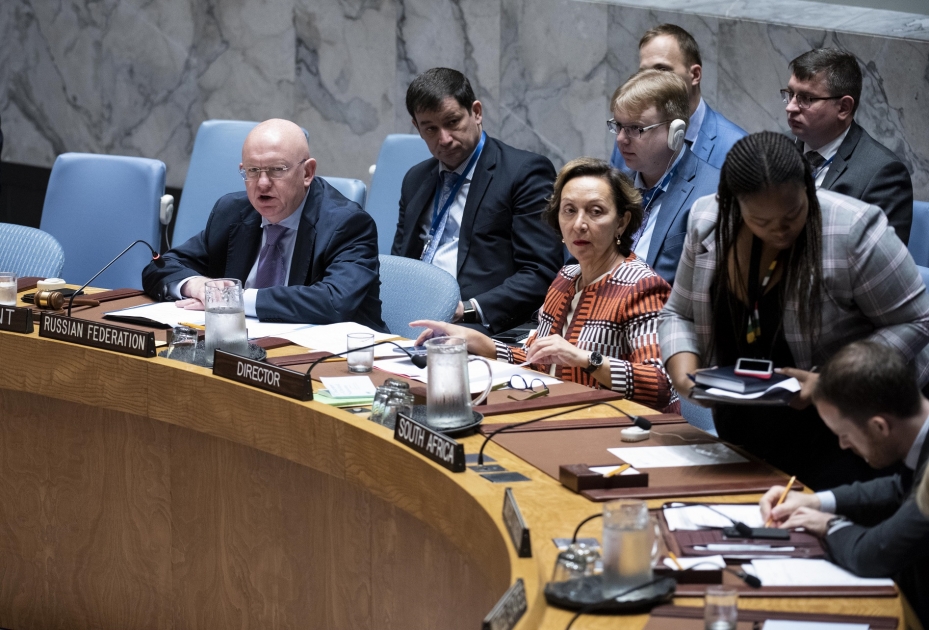Statement by Permanent Representative Vassily Nebenzia at the UN Security Council Meeting on South Sudan
We are grateful to SRSG David Shearer for the information he shared about the developments in South Sudan and the progress of peace process in this African country. We commend the role the Blue Helmets play at this moment crucial for the history of South Sudan.
We would like to point out the progress in implementation by the conflicting sides of the renewed peace agreement of 12 September 2018. It is vital that they demonstrate readiness to have dialogue and overcome disputes through search for compromise solutions. In this regard, the importance of three-day talks held in Juba between President Salva Kiir and former Vice-President Riek Machar under the IGAD mediation can hardly be overestimated. We are convinced that this meeting will give a renewed impetus to the process of South Sudanese reconciliation.
The decision the sides in South Sudan made on 12 November to extend the “pre-transition period” was not an easy one, but it was fully justified. We do hope that the members of the renewed agreement will take extra effort to meet the agreed terms and build Transitional Government of National Unity. As for non-signatories, we call upon them to partake in the shared state-building process.
We believe it crucial that the regionals have unity when it comes to their approaches to the South Sudanese settlement. We welcome the efforts of IGAD and Khartoum, who attend to the peace process in South Sudan. This is yet another proof of practical implementation of the principle “African solution to the African problems”. Besides, the cooperation capacity between the UN, its Security Council, and regional organizations has not yet been exhausted. We believe this will be beneficial for the process of national reconciliation.
We highlight the establishment and start of operation of structures and mechanisms that were stipulated in the renewed agreement. We are satisfied by the decrease in armed violence and in the incidence of human rights violations in the country. Increasingly more refugees and IDPs get back to places of their permanent residence. We link this to the implementation of mutual confidence measures, on-the-ground contacts between the opposing sides.
We share the concern expressed in the recent report of the Secretary-General that has to do with peacekeeping forces getting distracted to guard the so called protection of civilians sites. We believe further advance of political settlement will help restore the social contract and ensure the required level of security for ordinary South Sudanese who want to return to their homes.
We proceed from the assumption that the sides will be able to enhance mutual trust and escape repeating the mistakes of the past only if they implement their obligations rigorously and to the fullest extent.
We trust that progress in South Sudanese settlement was the result neither of enhanced sanction pressure nor of the arms embargo. The vital aspect that contributed to this progress was the involvement of regional mediators. I will say even more: at some point the existence of embargo impeded the implementation of regional security initiatives designed to promote the settlement. We expect that the South Sudanese will soon come to an agreement on a wide range of issues and it will provide an opportunity for revisiting the sanctions regime in order to adapt it to the new reality on the ground.
